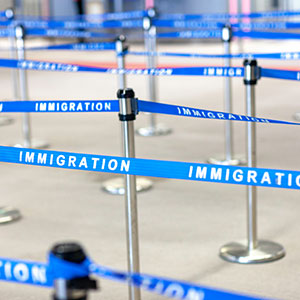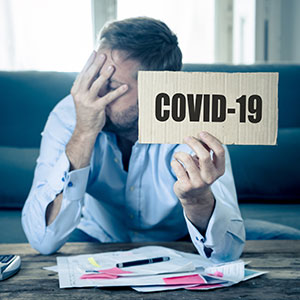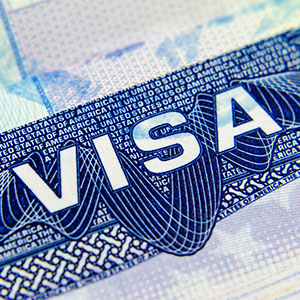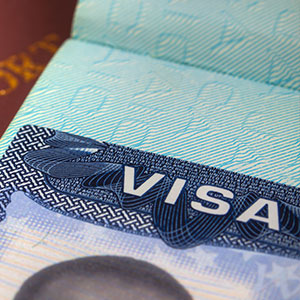
US immigration officials are allowed to deny visas and green cards to individuals who fail to meet certain criteria. Under the “public charge rule,” which was approved by a divided Supreme Court, these officials can now deny entry to a number of individuals. This will have a detrimental effect on legal immigration to the United States. However, the public charge rule does not apply to all categories of immigration and will not affect VAWA applicants. Public Charge Rule The new public charge rule took effect on February 24, 2020. The new rule affects people who are applying for visas and green cards within the United States. They are seeking an Adjustment of Status. While there has always been some type of public charge rule, it has now been expanded and will affect more potential immigrants. Previous rules denied visas and green cards to individuals who were primarily dependent on the government for subsistence. Now individuals who are “more likely than not” to use certain public…Read More

Just like anyone else who intends to come to the United States to work, athletes must have the appropriate visa or green card in order to perform their sport. There are a number of different options available, and you may want to consult with an attorney to determine what is the right visa for you. O-1 Visa O-1 visas are available for those individuals who demonstrate extraordinary ability in their field. To obtain an O-1 visa, an athlete must demonstrate that they have a “level of expertise indicating that they are one of the small percentage who has risen to the top of their field of endeavor.” P-1 Visa Athletes who cannot meet the high standards of an O-1 visa may qualify for a P-1 visa. In order to qualify for a P-1 visa, an athlete must demonstrate that they are internationally recognized and are coming to the United States to participate in a league or event with a distinguished reputation. Athletes who will be…Read More

Navigating immigration processes can be stressful at any time. During a global pandemic, the situation can become even more complicated. For instance, what do you do if you’re in the United States and at risk for overstaying your visa? Overstaying Your Visa Overstaying your visa can come with a cost. In the worst-case scenario, you may be prevented from entering the United States or from applying for another visa. If you overstay your visa from between 6 months to a year, you may be banned for at least three years. If you overstay longer than a year, you can be barred for ten years. Given the travel restrictions, it’s difficult to just book yourself a flight to your home country. So what do you do? The USCIS has issued a set of guidelines. If your case is complicated, you will want the assistance of an experienced immigration attorney. Apply For An Extension If you intend to remain in the United States, then you can apply for…Read More

If you are the victim of abuse, you have some options when it comes to your immigration status. The U visa is available for victims of serious crime and self-petitions under the Violence Against Women Act (VAWA) are available for victims of domestic abuse. Both forms of relief provide a path to citizenship. There are some factors that can help you decide which visa applies to your situation. Cap On U Visas, No Cap On VAWA Petitions One downside to a U visa is that there only a limited number of visas available. There is a limit of 10,000 per year. This cap is usually met before the end of the year. This means that you may be able to apply for a visa until the following year. With VAWA petitions, however, there is not a limit. Path To A Green Card Is Faster With VAWA Petitions Because there is an enormous backlog of U visa petitions, you could wait several years for your visa…Read More

Shutdowns due to the COVID-19 pandemic have led to millions of workers across the country being laid off from their jobs. This has been a hardship for many people, but for those in the United States on work visas, the situation has become particularly tenuous. Workers On H-1B Visas H-1B visas are specialty visas granted to foreign workers who have at least a four-year college degree. This visa program is commonly associated with the tech sector but is also available for workers in healthcare, academia, and other fields. The United States puts a cap of 65,000 visas every year. When the number of applications exceeds the cap, which it typically does, then the applications processed are chosen by a lottery system. Most H-1B visa holders have made multiple attempts before being granted a visa. In order to stay in status for an H-1B visa, you must be working for the employer you stated you would be working for in your application. You also need to…Read More

Requests for evidence have become an increasingly common trend for O-1 visa applications. These requests for evidence, or “RFEs,” require documentation demonstrating the extraordinary ability of O-1 visa applicants. According to USCIS data, in 2019, there was a close to 30% rate of RFEs. This is the highest level since 2015. What Is A Request For Evidence? When there is a lack of documentation or supporting evidence in a visa petition, the USCIS will send an RFE. If there is any claim in a petition that is not well-supported, an RFE will be issued and sent to the applicant. Your application processing will then be placed on hold until you have provided the requested evidence. The RFE will contain a deadline for submitting the evidence, and failure to meet this deadline could result in your application stalling. Common Reasons For A Request For Evidence RFEs can be issued for a variety of reasons. However, in O-1 visa cases, most RFEs are issued for some common…Read More

In January of 2020, a divided Supreme Court allowed US officials to implement the so-called “public charge” rule. The rule, which was unveiled in August of 2019, is expected to result in serious restrictions on immigration. It expands the definition of an individual who is or could be an economic burden on the United States. Public Charge Rule The public charge rule gives immigration officials more power to deny visa and green card applications from immigrants who, in the opinion of the United States government, rely or could potentially rely on certain government-offered benefits. Similar rules were previously in place, but the new rule focuses more on cash benefits. Immigration caseworkers can now consider an immigrant’s enrollment in a wide range of federally funded programs in areas such as healthcare and nutrition. Critics argue that the public charge rule will drastically limit the immigration possibilities for numerous foreign nationals from developing countries. However, not all categories of prospective immigrants will be affected. O Visas The…Read More

Work visas in the United States are designed for the different skills that individual workers have. When applying for a work visa, it is important to choose the one that works best for your career goals. If you are a software engineer, you should consider applying for an O-1 visa. As a software engineer, there are a few important advantages to having an O-1 visa, including: Working For Multiple Employers O-1 visas are one of the most flexible nonimmigrant visas in the United States. You are allowed to work for an employer or organization or pick up multiple jobs from different employers. Period Of Stay O-1 visas have an initial stay period of three years. This stay can be renewed in one-year increments for as long as you have a contract with an employer. This is different from other nonimmigrant visas that require an individual to leave once the visa has expired. There is also no limit to how many times you can ask for…Read More

E-2 treaty investor visas offer foreign nationals an opportunity to begin their own business in the United States. Compared to other visas, it is not as complicated to apply for. However, it does come with some stringent requirements. There are both advantages and disadvantages to E-2 treaty investor visas. Advantages Of The E-2 Treaty Investor Visa One of the main advantages of an E-2 treaty investor visa is that you have the ability to conduct business in the United States and be employed by that business. You must play a vital role in the business in order to be eligible for the visa. This can be demonstrated by showing ownership of more than 50% or operational control through a managerial position. In addition, there is no minimum or maximum amount of investment that must be made, although the investment must be substantial. The investment should be proportionate to the nature of the business. Another advantage of the E-2 visa is that your spouse and children…Read More

The United States has always been an important destination for artists around the world and the United States has always been welcoming. From amateurs to professionals, artists and performers are eager to show off their skill to American audiences. P visas are available for artists and performers who wish to show off their talents in the United States. P-1 Visa The P-1 visa is available for artists who will be performing as part of a group project. This type of visa is generally not available for individual artists. The group must be recognized internationally as outstanding for a sustained and substantial amount of time. Along with the artists and performers, support personnel who are essential to the performance may also obtain a visa. They must perform support services that cannot be readily performed by a US worker. For the artists’ group to be eligible, at least 75% of the group must have had a substantial and sustained relationship with the group for at least one…Read More